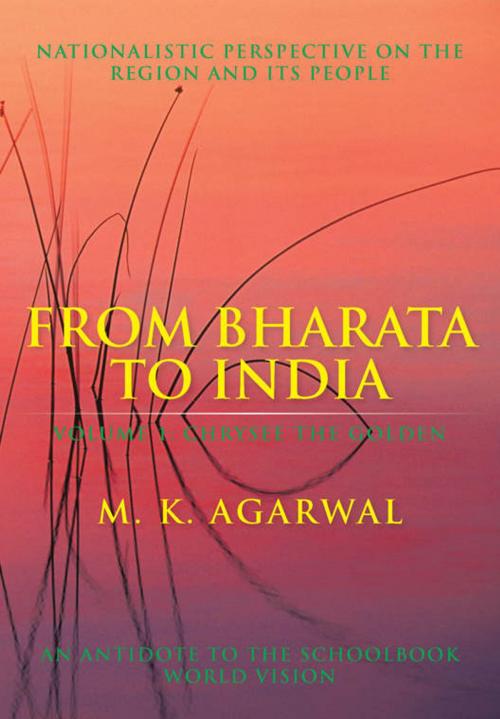From Bharata to India
Volume 1: Chrysee the Golden
Nonfiction, History, Asian, India, Civilization, Ancient History| Author: | M. K. Agarwal | ISBN: | 9781475907667 |
| Publisher: | iUniverse | Publication: | May 22, 2012 |
| Imprint: | iUniverse | Language: | English |
| Author: | M. K. Agarwal |
| ISBN: | 9781475907667 |
| Publisher: | iUniverse |
| Publication: | May 22, 2012 |
| Imprint: | iUniverse |
| Language: | English |
The origin of world civilization can be traced to the Sindhu and Sarasvati river valleys (located in present-day Pakistan) as early as 8,000 BC. Here, innovation and originality in every aspect of human endeavor, from mathematics and science to art and sports, flourished. Yet the importance of this civilization, known as the Vedic period, has been deliberately downplayed.
Thoroughly researched and including an extensive bibliography, From Bharata to India rectifies this mistake in the perspective of world history and seeks to offer a comprehensive reference source. Author M. K. Agarwal shows how this early culture, where ideation by enlightened philosopher Brahmin kings, brought material and spiritual wealth that was to remain unchallenged until the colonial era. This Vedic-Hindu-Buddhist legacy subsequently influenced peoples and paradigms around the globe, ushering in an era of peace and plenty thousands of years before the Europeans.
By using original sources in Sanskirt as well as regional literature, Agarwal compares corresponding situations in other civilizations within the context of their own literary traditions and records to prove that Bharata forms the basis of world civilization. This is in direct contrast to the Greek or Arab miracle hypothesis put forth by numerous scholars.
The first of two volumes in this series, From Bharata to India offers a fascinating, in-depth glimpse into ancient Indias contribution to the modern world.
The origin of world civilization can be traced to the Sindhu and Sarasvati river valleys (located in present-day Pakistan) as early as 8,000 BC. Here, innovation and originality in every aspect of human endeavor, from mathematics and science to art and sports, flourished. Yet the importance of this civilization, known as the Vedic period, has been deliberately downplayed.
Thoroughly researched and including an extensive bibliography, From Bharata to India rectifies this mistake in the perspective of world history and seeks to offer a comprehensive reference source. Author M. K. Agarwal shows how this early culture, where ideation by enlightened philosopher Brahmin kings, brought material and spiritual wealth that was to remain unchallenged until the colonial era. This Vedic-Hindu-Buddhist legacy subsequently influenced peoples and paradigms around the globe, ushering in an era of peace and plenty thousands of years before the Europeans.
By using original sources in Sanskirt as well as regional literature, Agarwal compares corresponding situations in other civilizations within the context of their own literary traditions and records to prove that Bharata forms the basis of world civilization. This is in direct contrast to the Greek or Arab miracle hypothesis put forth by numerous scholars.
The first of two volumes in this series, From Bharata to India offers a fascinating, in-depth glimpse into ancient Indias contribution to the modern world.















